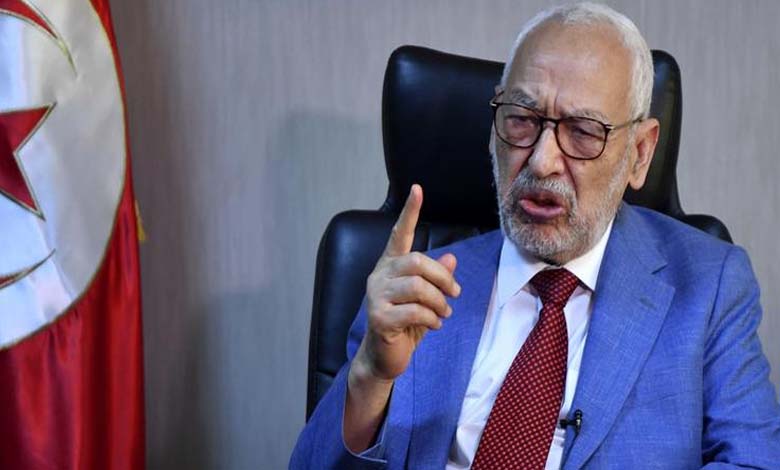In 2024… Tunisia’s Muslim Brotherhood Pays the Price for Their Crimes

Tunisian political analyst Mohamed Al-Maidani stated: “The year 2024 was a year of accountability for the Muslim Brotherhood in Tunisia and judicial tightening against them,” affirming that “the Ennahdha movement has ended in Tunisia, becoming a marginalized and rejected party both politically and by the public.”
-
The Ennahdha Movement collapses… Crises hit the Muslim Brotherhood in Tunisia
-
In 2024… Tunisia’s Muslim Brotherhood Pays the Price for Their Crimes
He emphasized: “The Ennahdha movement has collapsed, with no part of its ailing structure remaining capable of challenging or uniting this failing entity.” He added that the movement’s failure to announce the appointment of a new leader signals its demise and a shift towards clandestine activities to avoid prosecution.
The Ennahdha movement faces accusations in serious cases, including sending hundreds of young Tunisians to conflict zones since 2011, the involvement of its armed wing in political assassinations in Tunisia over the past years, and plots to undermine state security.
-
Descendants of the Muslim Brotherhood and Ennahdha Movement: Tunisian Calls to Ban the Radical Hizb ut-Tahrir Party
-
How Kais Saied Ended the Control of the “Muslim Brotherhood” Over Tunisia and Its Institutions: A Report Explains
Over the past years, the Muslim Brotherhood attempted to change its image in a bid to regain its lost status. However, this new maneuver did not deceive Tunisians, who suffered greatly during their rule and have rejected them both politically and publicly.
At the beginning of 2024, the Ennahdha movement, the Muslim Brotherhood’s branch in Tunisia, announced its intention to change its name and that of its Shura Council.
-
Tunisia Ends the Era of the Muslim Brotherhood: Kais Saied Wins Presidential Election in the First Round
-
Tunisian Muslim Brotherhood Leader Sentenced to Three Years in Prison
The year 2024 also witnessed the prosecution of Ennahdha leaders for crimes committed against Tunisia and its people over the past ten years. On February 1, 2024, the judiciary sentenced the head of Tunisia’s Muslim Brotherhood, Rached Ghannouchi, and his son-in-law Rafik Abdel Salam to three years in prison for receiving foreign funding during the 2019 elections, following months of judicial investigations.
Another sentence was issued against Ghannouchi for charges of money laundering and threatening state security in a case known as the “Instalingo” company, specializing in digital content production.
-
Tunisia’s Muslim Brotherhood and the Elections: Presidential Messages Expose Efforts to Gain Foreign Support
-
In the Presidential Elections… Tunisia Crushes the Hopes of the Muslim Brotherhood
In mid-May 2024, another ruling by the Tunisian judiciary sentenced Ghannouchi to three years in prison in a case concerning political parties’ foreign funding.
On June 24, 2024, the Tunisian Court of Appeal sentenced Ghannouchi to one year in prison and fined him 1,000 dinars ($333) in a case related to “glorifying terrorism.”
On July 24, 2024, Tunisia’s Judicial Anti-Terrorism Pole (a specialized court) issued an arrest warrant for Ennahdha’s Secretary-General Ajmi Lourimi, along with Brotherhood leaders Moussab Al-Gharbi and Mohamed Al-Ghanoudi, in a case of “conspiracy against state security.”
-
3 Years Since the Overthrow of the Muslim Brotherhood’s Rule: Tunisia Steadily Marches Towards the Future
-
The Tunisian Muslim Brotherhood Casts Doubt on Election Results Ahead of Time, and the Electoral Commission Responds… Details
On September 14, 2024, Tunisian authorities arrested 80 Ennahdha leaders accused of “planning unrest and conspiracy,” including Mohamed Al-Qallawi, Mohamed Ali Boukhatem, and Tawfiq Ben Ammar.
On October 18, 2024, the Tunisian judiciary sentenced former Justice Minister and Ennahdha leader Noureddine Bhiri to 10 years in prison for endangering state security and inciting Tunisians against each other.












